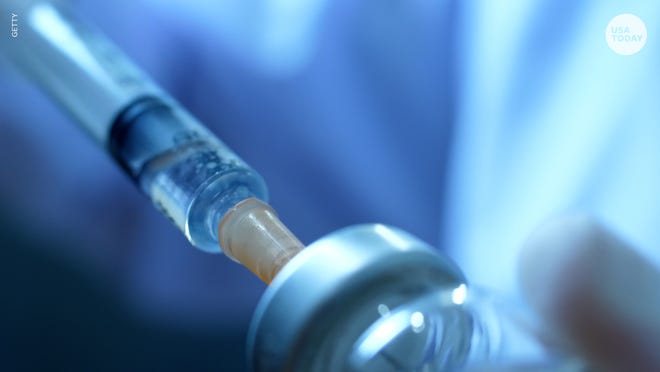
- The best antibody protection came from a two-dose series of one of the mRNA vaccines, either Pfizer-BioNTech or Moderna, followed by an mRNA booster.
- A COVID-19 booster shot created “substantially higher” antibodies than vaccination followed by omicron infection, according to the Cell study published this week.
- Johnson & Johnson vaccine recipients, even with an mRNA booster, didn’t get the “breadth of response” of people with three mRNA doses, the study found.
New evidence underscores the importance of boosters against omicron, with an mRNA vaccine booster offering the best protection against the fast-spreading variant.
People who got either the Pfizer-BioNTech or Moderna two-dose COVID-19 vaccine series and then a booster achieved “potent” neutralization against omicron, a paper published Thursday in the journal Cell found.
The initial two-dose vaccine regime does not produce antibodies capable of fully recognizing and neutralizing the omicron variant, researchers at the Ragon Institute at Massachusetts General Hospital, MIT and Harvard found.
They noted that while omicron is better at getting past vaccine-created immunity, people who have breakthrough cases do have milder disease, which could be because their initial vaccination helped create long-term immunity, the researchers postulated.
"Even if antibodies can't keep us from getting infected with omicron, other aspects of the immune response may keep us from becoming very sick," said Alejandro Balazs, who investigates how to engineer immunity against infectious diseases at the Ragon Institute and is the paper's senior author.
U.S. CORONAVIRUS CASES SURGE PAST PREVIOUS RECORDS:How omicron is shaping the pandemic
The Food and Drug Administration's goal for all COVID-19 vaccines is to protect against severe disease, hospitalization and death. All three COVID-19 vaccines currently in use in the United States – Pfizer-BioNTech, Moderna and Johnson & Johnson – are remarkably successful at achieving that goal.
However, emerging data shows vaccine effectiveness does wane over time and that as newly-mutated variants emerge, the vaccines may be less effective.
To study this, the researchers created a harmless version of omicron known as a “pseudovirus” that they could use in the laboratory to evaluate the effectiveness of the vaccines.
They then collected blood samples from 239 vaccinated people and used them to measure how well different vaccine combinations produced neutralizing antibodies against omicron, delta and original COVID-19.

The best antibody protection came from a two-dose series of one of the mRNA vaccines, either Pfizer-BioNTech or Moderna, followed by an mRNA booster.
Just getting two doses of an mRNA vaccine without a booster was “suboptimal for inducing neutralizing responses to the omicron variant,” the paper said.
Getting infected with omicron after being vaccinated instead of getting boosted wasn’t anywhere near as effective, they found. The booster created “substantially higher” antibodies than vaccination followed by an infection.
WHAT ABOUT US? J&J vaccine recipients are 'questioning our protection' against COVID – and stuck waiting for a third shot
A South African study released on Dec. 29 found that Johnson & Johnson vaccine recipients who got a J&J booster six to nine months after their initial vaccination saw vaccine effectiveness against hospitalization increase from 63% to 84%.
The Cell study found that for participants who had gotten one dose of J&J vaccine, being boosted with an mRNA vaccine produced “substantially higher” protection than those who received only one dose of J&J vaccine.
Even so, those J&J plus an mRNA booster participants still didn’t get the “breadth of response” of people who got three doses of mRNA vaccine, the Cell study said.
"Our results would suggest that these recipients of Ad26.COV2.S (the J&J vaccine) may benefit from additional mRNA vaccine doses with the potential to further raise titers and broaden their neutralizing activity," they wrote.
The mechanism behind the findings is still being worked out, the researchers said. Boosters may dramatically improve immune protection against omicron because they make antibodies more effective by helping them bind more tightly to the spike protein on the cell's surface.
Or they may generate antibodies that target regions of the spike protein common to all forms of COVID-19. Or both may be true, said the paper’s lead author, Dr. Wilfredo F. Garcia-Beltran, a clinician-scientist fellow at the Ragon Institute.
Contact Elizabeth Weise at [email protected]
Source link









